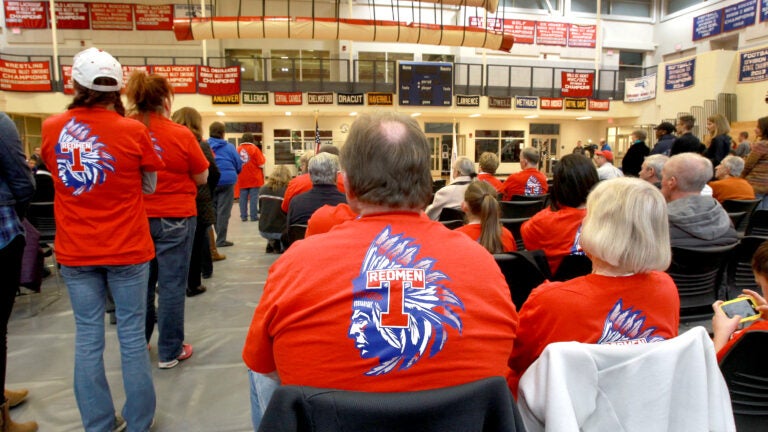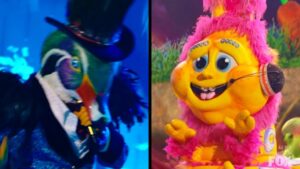Local
“It is the state’s job to safeguard civil rights, racial justice, Indigenous rights for the constituents of the Commonwealth.”
At least 23 schools in Massachusetts still use Native American mascots, nicknames, and logos, according to the New England Anti-Mascot Coalition.
Many local Indigenous tribes say these represent harmful and derogatory stereotypes about Native people. Studies have shown they can lower self-esteem and cause psychological harm.
Two versions of a bill, one in the House and one in the Senate, are making their way through the state Legislature and seek to end the practice of using Native American mascots.
The proposal prohibits schools from “using an athletic team name, logo, or
mascot which names, refers to, represents, or is associated with Native Americans, including aspects of Native American cultures and specific Native American tribes.”
Sponsored by state Sen. Joanne Comerford, a Democrat who represents Hampshire, Franklin, and Worcester, the bill has support from several local tribal leaders and members.
“We don’t leave other issues of that kind of major [importance] to communities to decide themselves,” she told WGBH. “It is the state’s job to safeguard civil rights, racial justice, Indigenous rights for the constituents of the Commonwealth.”
Supporter Kisha James, a member of the Wampanoag Tribe of Gay Head Aquinnah, told The Boston Globe that Native American mascots dehumanize and can promote violence against Indigenous people.
“Mascot is just another word for pet,” she said. “It solidifies this idea that we’re not people. We’re costumes, we’re characters forever stuck in the past.”
Among the tribes that have expressed support for the measure are the Chappaquiddick Tribe of the Wampanoag Nation, the Herring Pond Wampanoag Tribe, the Mashpee Wampanoag Tribe, Massachuset-Ponkapoag Tribal Council, the Nipmuc Nation, and the Pocasset Wampanoag Tribe of Massachusetts and Rhode Island.
Cheryl Andrews-Maltais, the leader of the Wampanoag Tribe of Gay Head Aquinnah, wrote a letter that James posted on Twitter to state Senate leaders opposing the bill as written. James is a member of that tribe.
In the letter, Andrews-Maltais said that while the tribe supports the removal of negative, derogatory depictions of Native Americans, it doesn’t support “any legislation which attempts to sweepingly remove all references to us as Indigenous, Native or Indian Peoples.”
“Eradicating all references to us, which attempts to remove us from contemporary consciousness, erases our current existence, and ultimately relegates us into a marginalized existence in history, eliminating us as part of today’s culture and society,” Andrews-Maltais said in the letter.
James told the Globe that the bill has support from many members of her tribe.
The legislation comes as many schools have already dropped their Indigenous mascots and symbols, according to WGBH. However, other communities have struggled with leaving the familiar symbols of school pride behind, like Tewksbury and Wakefield.
Rhonda Anderson, the western Massachusetts Commissioner on Indian Affairs, told the station that well over a dozen schools have dropped offensive names or logos in the last year.
“When I started this in 2017… we were like in the 40s,” she told WGBH. “So this is massive.”
Newsletter Signup
Stay up to date on all the latest news from Boston.com






